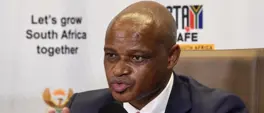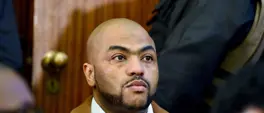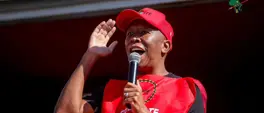Human rights organisation, COSATU and economists debate future of social grants
Marecia Damons, GroundUp
30 May 2025 | 10:21Black Sash argues they are a vital safety net but economist questions their viability.
South Africa’s economy is not creating enough jobs, so what happens to the millions of people who currently rely on social grants? This was the question raised by activists, economists and labour leaders at a panel discussion hosted by the Black Sash in Cape Town on Wednesday.
The event was part of the organisation’s 70th anniversary celebrations, and looked at the impact of removing social assistance in a country with high youth unemployment, food insecurity and growing inequality.
The General Household Survey released by Statistics South Africa (StatsSA) on Tuesday, shows that the proportion of people receiving social grants grew from about 13% in 2003 to 31% in 2019 and surged to 40% in 2024 “due to the introduction of the special Covid-19 Social Relief of Distress (SRD) grant”.
Rachel Bukasa, Executive Director of Black Sash, said social grants are not a luxury, but a necessary response to high unemployment and poverty.
“Grants are an important stop-gap to the poverty and unemployment that exists. One of the biggest misconceptions when we talk about grants is that we don’t want people to work. When we call for grants, it’s in the absence of the jobs that the government has promised year after year.”
She said while job creation remains the goal, the economy doesn’t offer enough work for those who need it. Bukasa dismissed claims that grants breed dependency, saying they are a vital safety net while the government works to improve the job market.
COSATU’s Tony Ehrenreich agreed with Bukasa. He said the alternative to social support from the state is people falling into hunger and desperation.
“Grants are only a requirement when the market has failed. If the market is perfect there will be no need for grants, but the market is not perfect so we need to take care of people in the interim … It’s not a question of jobs or grants. It’s both,” Ehrenreich said.
StatsSA reported that the official unemployment rate stood at about 33% in the first quarter of 2025. The expanded unemployment rate, which includes discouraged job seekers, is 43%. Ehrenreich said these statistics show the current economic direction is not working. “We can say the system has failed if we look at the unemployment rate and deepening inequality … Must poor people pay for the failure of the rich and the public policymakers who drive around in their fancy cars? That can’t be the response.”
But political economist Phumlani Majozi said the current grant system is putting too much pressure on the country’s fiscus. “South Africans agree that the best way to move forward as a society is for people to have jobs … In our budget, the social grant expenditure is massive. 65% of our expenditure goes towards social grants, subsidised housing etc … Fiscally, it’s not something that is manageable.”
He criticised the lack of government vision. “Where is the plan from the president and his cabinet to say by a certain year these are the targets … It doesn’t seem like Enoch Godongwana has a plan.”
Majozi said the system discouraged reform. “There will be no incentive for government to change and pursue policies to encourage economic growth if our first argument is that we need social grants.”
To which Bukasa responded that social security is a right, not a favour. “Social assistance is protected by the Constitution. So we need to do away with the notion that it’s a favour the government is doing … The fact that we have high needs for social protection right now is a reflection of governments inability to deliver on job creation.”
This article first appeared on GroundUp. Read the original article here.
Get the whole picture 💡
Take a look at the topic timeline for all related articles.

















